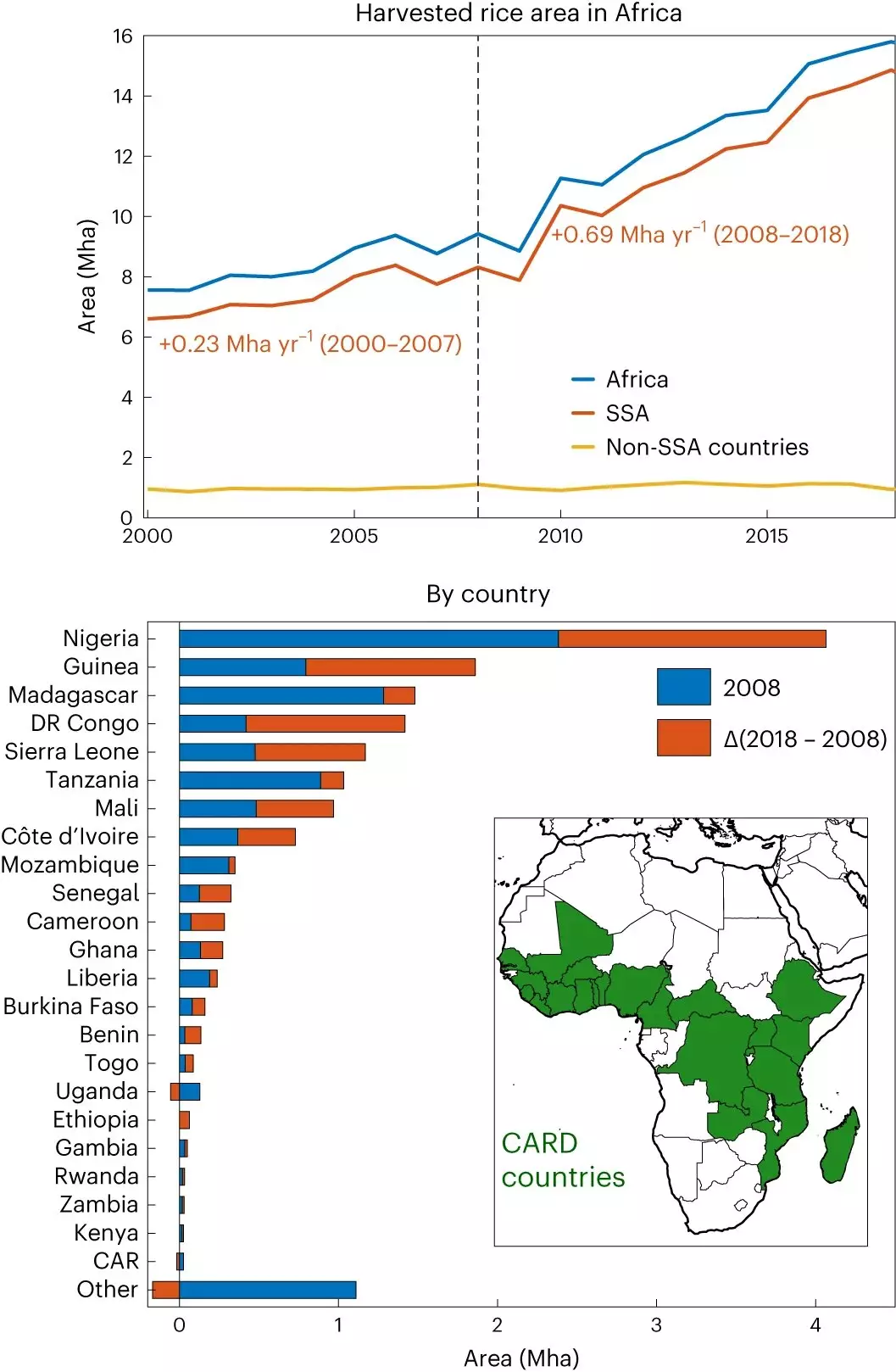A recent study conducted by a team of engineers and atmospheric scientists at Harvard University, together with a colleague from the California Institute of Technology’s Jet Propulsion Laboratory, has shed light on the alarming increase in methane emissions resulting from the expansion of rice farming in parts of Africa. The researchers recalculated methane emissions due to the recent surge in rice production in sub-Saharan Africa and made significant findings regarding its impact on the environment.
The Significance of Methane Emissions
Methane is the second most important greenhouse gas, surpassed only by carbon dioxide. Unlike CO2, methane has greater radiative properties, meaning it traps heat more effectively in the atmosphere. Although methane emissions are lower in quantity compared to carbon dioxide, they exert a substantial influence on global warming. Agricultural activities, including rice farming, contribute approximately 25% of all human-caused methane emissions, while waste disposal and fossil fuel production account for the majority of the remaining emissions.
It has been established through previous research that rice cultivation in sub-Saharan Africa has experienced a doubling of production between 2008 and 2018. This increase is beneficial for addressing food security concerns as rice accounts for around 9% of the continent’s caloric intake. However, it has adverse consequences for the environment. Rice farming, particularly in flooded fields, releases significant amounts of methane into the atmosphere.
Understanding the Impacts
The research team embarked on recalculating Africa’s total greenhouse gas emissions prior to 2008 and factored in the specific methane emissions attributable to rice cultivation. Various factors associated with rice farming, such as irrigation, field flooding, burning, and harvesting, were taken into consideration. The extent of rice-growing areas was also more accurately determined, along with the number of days rice fields emitted methane. This comprehensive approach allowed for a precise estimation of methane emissions for the entire continent.
The results of the study revealed that the increase in rice production in Africa contributed approximately 31% of the overall rise in methane emissions between 2006 and 2017. Furthermore, it accounts for 7% of the global increase in methane emissions during the same period. These statistics indicate that the expansion of rice farming in Africa significantly impacts the release of methane, exacerbating the already alarming levels of greenhouse gas emissions.
The rapid growth of rice farming in sub-Saharan Africa has proven to be a double-edged sword. While it addresses food security concerns for the continent, it also intensifies the emission of methane, a potent greenhouse gas. The research conducted by the team of engineers and atmospheric scientists at Harvard University emphasizes the urgent need to develop sustainable agricultural practices to mitigate the environmental impact of rice farming. It is crucial for stakeholders to work collaboratively towards finding innovative solutions that strike a balance between food production and environmental preservation. Failure to address this issue may perpetuate the damaging consequences of methane emissions on global warming and climate change.



Leave a Reply